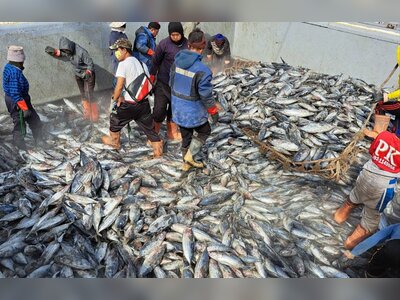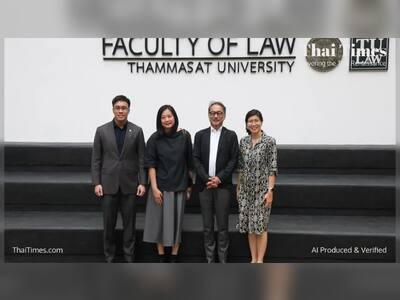
Thailand's Ministry of Public Health Initiates Revamp of Thai Massage Industry
Efforts aim to enhance standards and protect the integrity of Thai massage as an intangible cultural heritage.
The Ministry of Public Health (MOPH) in Thailand has announced a series of initiatives aimed at improving the standards and reputation of Thai massage services.
Kosit Suvinijjit, an adviser to the Minister of Public Health, noted a significant increase in wellness spas and health service businesses, but he also highlighted a critical shortage of approximately 50,000 qualified Thai massage practitioners across the country.
Concerns about the inconsistent standards and subpar practices within the massage industry have been flagged, which have led to a public perception linking Thai massage to inappropriate establishments such as brothels.
Kosit stressed the importance of differentiating authentic Thai massage, known as nuad Thai, from lesser quality services.
Nuad Thai received recognition from the United Nations Educational, Scientific and Cultural Organisation (UNESCO) as an intangible cultural heritage of humanity in 2019. Consequently, businesses that utilize the term ‘nuad Thai’ are required to adhere to specific standards to maintain this distinction.
Addressing past missteps that contributed to the stigmatization of Thai massage, the MOPH has threatened legal action against entities that misrepresent this service.
Kosit remarked on the need for public respect towards Thai massage practitioners, characterizing their work as a noble profession.
To support the preservation of traditional knowledge, the Ministry has launched the “Skilled Local Massage Practitioner” project, initiating a pilot program for 100 selected individuals.
This initiative aims to document the expertise of local practitioners who have acquired their skills through familial lineage or temple instruction.
The Ministry plans to classify Thai massage practitioners based on the number of training hours completed, which will range from a minimum of 60 hours for entry-level practitioners to between 500 and 800 hours for those at advanced levels.
This structure is intended to incentivize practitioners to enhance their skills and acquire new techniques, linking higher certification levels to increased income potential.
Furthermore, service providers will adjust pricing according to practitioners' certification levels, and a star-rating system will be introduced to aid practitioners in improving their qualifications and potential earnings.
The Ministry has also set a goal to train an additional 20,000 professional Thai massage practitioners, focusing on specializations that include treatment for muscle pain, frozen shoulder, and stroke recovery.
These initiatives are expected to address the ongoing shortage while providing promising career opportunities within the industry.
Kosit Suvinijjit, an adviser to the Minister of Public Health, noted a significant increase in wellness spas and health service businesses, but he also highlighted a critical shortage of approximately 50,000 qualified Thai massage practitioners across the country.
Concerns about the inconsistent standards and subpar practices within the massage industry have been flagged, which have led to a public perception linking Thai massage to inappropriate establishments such as brothels.
Kosit stressed the importance of differentiating authentic Thai massage, known as nuad Thai, from lesser quality services.
Nuad Thai received recognition from the United Nations Educational, Scientific and Cultural Organisation (UNESCO) as an intangible cultural heritage of humanity in 2019. Consequently, businesses that utilize the term ‘nuad Thai’ are required to adhere to specific standards to maintain this distinction.
Addressing past missteps that contributed to the stigmatization of Thai massage, the MOPH has threatened legal action against entities that misrepresent this service.
Kosit remarked on the need for public respect towards Thai massage practitioners, characterizing their work as a noble profession.
To support the preservation of traditional knowledge, the Ministry has launched the “Skilled Local Massage Practitioner” project, initiating a pilot program for 100 selected individuals.
This initiative aims to document the expertise of local practitioners who have acquired their skills through familial lineage or temple instruction.
The Ministry plans to classify Thai massage practitioners based on the number of training hours completed, which will range from a minimum of 60 hours for entry-level practitioners to between 500 and 800 hours for those at advanced levels.
This structure is intended to incentivize practitioners to enhance their skills and acquire new techniques, linking higher certification levels to increased income potential.
Furthermore, service providers will adjust pricing according to practitioners' certification levels, and a star-rating system will be introduced to aid practitioners in improving their qualifications and potential earnings.
The Ministry has also set a goal to train an additional 20,000 professional Thai massage practitioners, focusing on specializations that include treatment for muscle pain, frozen shoulder, and stroke recovery.
These initiatives are expected to address the ongoing shortage while providing promising career opportunities within the industry.











